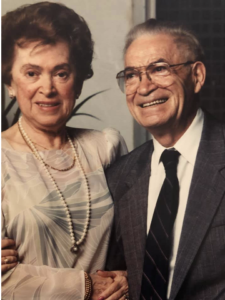Dear WJC Family,
 This week there was an interesting coincidence of dates, as my wife Tami pointed out in a particularly poignant Facebook post: January 27 is International Holocaust Remembrance Day. It marks the date that Auschwitz was liberated. It just so happened that this year the Jewish holiday of Tu B’Shvat, the new year of the trees, started in the evening of the 27th.
This week there was an interesting coincidence of dates, as my wife Tami pointed out in a particularly poignant Facebook post: January 27 is International Holocaust Remembrance Day. It marks the date that Auschwitz was liberated. It just so happened that this year the Jewish holiday of Tu B’Shvat, the new year of the trees, started in the evening of the 27th.
As Tami wrote, “I keep thinking about the confluence of these events. The idea of using a tree as a metaphor for a life or a family is not new, but it struck me as apt. In the Holocaust so many lives were cut short, decimating families, entire villages and towns, communities… Today I think of those as trees that were cut down, many of them in their prime or even before they began to sprout. We mourn their loss.
Some people were able to survive. Many of those planted new roots and grew new family trees. We are in awe of and grateful for that continuation. I am particularly grateful for the two survivors in this picture, my paternal grandparents, Israel and Regina. Through grit, luck, and sheer force of will they were able to avoid the terrible fate of many people in their family and start anew. And our family tree continues through them.”
These are beautiful sentiments and I too find it comforting to think about the linkage through the generations of our family, a lineage we might call a tree.
Still, we can’t quite fathom why some trees would be cut down and others allowed to thrive. Thursday night I taught a class about this week’s Torah portion, Beshallach, which includes the poem known as the “Song of the Sea.” This poem that the Jewish people sang after crossing the Red Sea and tasting freedom for the first time in 400 years has become a cornerstone of our Morning Prayer Service. Why? In class I argued that it is because this was the first time the Jewish people saw God act directly to influence the history of the world.
Now, after modern atrocities like the Shoah, along with so many inexplicable evils that plague the modern world, we are left asking where is that God of history, and there are no simple answers. One answer that I do find inspiring, if not fully satisfactory, is that as the Jewish people have matured in our own journey from that great moment of freedom, we have become God’s tools for cultivating holiness and goodness in the world. When a tree is threatened, metaphorically speaking, it is our job to protect it. We are the people of Tikkun Olam, of repairing and healing the world. I am very much looking forward to exploring that topic of healing with our Scholar in Residence next Shabbat (2/5-2/7), Rabbi Menachem Creditor as he presents “Healing Ourselves, Our Community, Our World.” If you haven’t already, you can register for this meaningful weekend here: www.wjcenter.org/scholar
This Shabbat we will once again be without a minyan in the sanctuary after the past two weeks with bnai mitzvah: Cantor Goldberg and I will be leading Friday night services starting at 5:00pm on the Live Stream. Then all the clergy will be in the sanctuary in the morning – Cantor Goldberg will daven the early services solo and then at 10am we will all be there for a Saturday morning service without a minyan. Cantor Goldberg will do some teaching in honor of Shabbat Shirah (the Shabbat when we read the Song of the Sea) and Rabbi Dalton will also share some teaching on the Torah portion. Then we will have havdalah online at 6:00pm.
See you online,